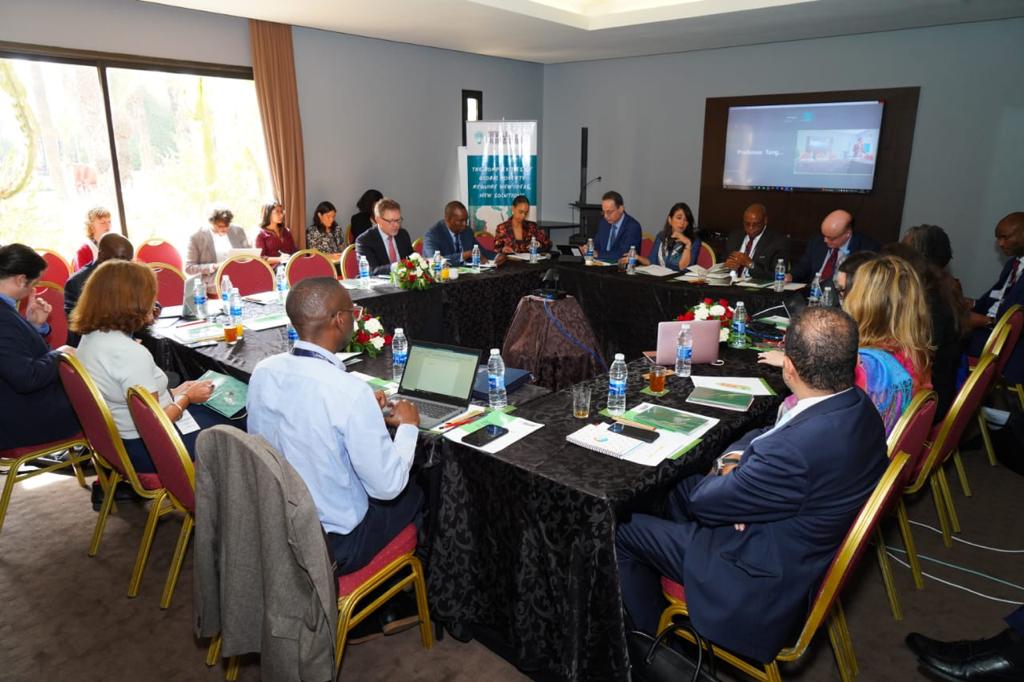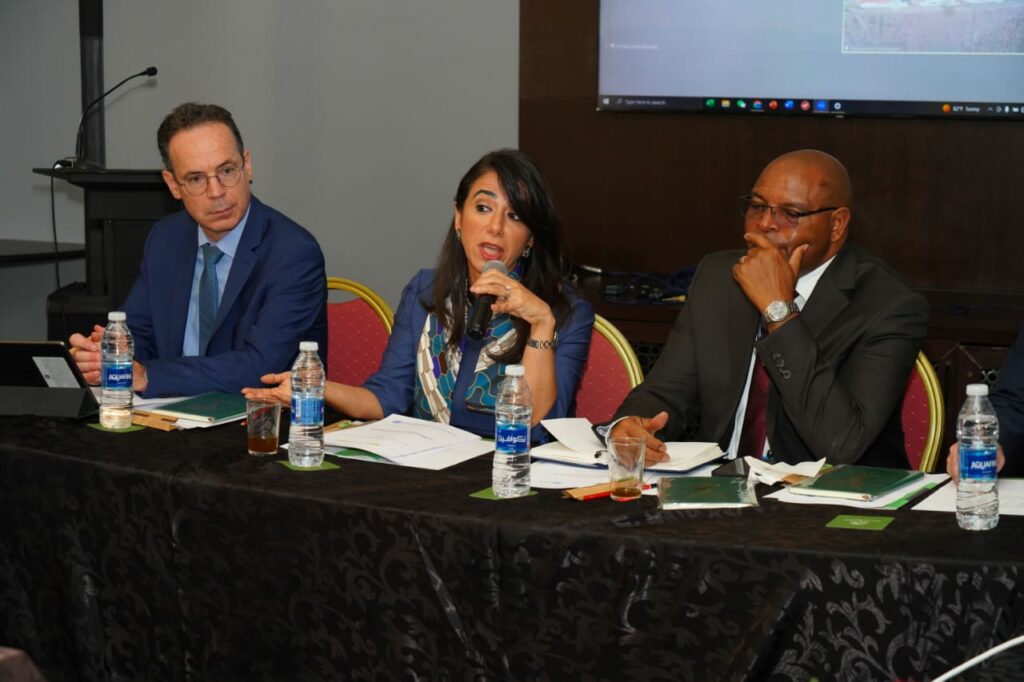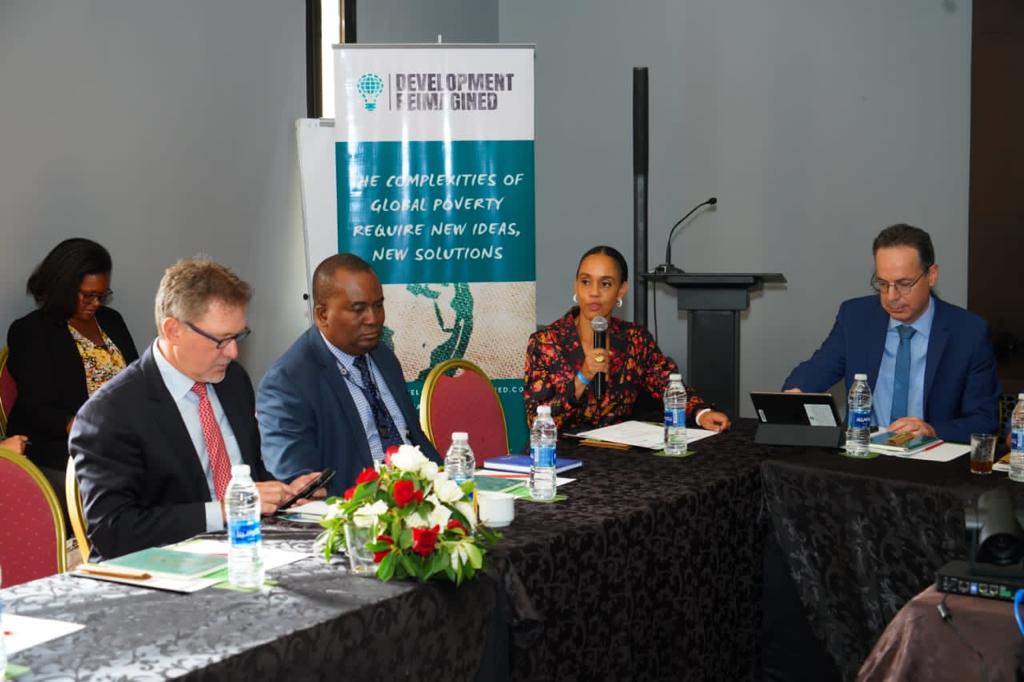On the sidelines of the 2023 World Bank – IMF Annual Meetings in Marrakesh, Morocco, on Friday 13th October 2023, Development Reimagined (DR) and the United Nations Economic Commission for Africa (UNECA) hosted an event entitled:
“Reimagining Debt Rules: What is the African Position on the G21 Common Framework?”
The reason for this event was clear. The current international initiatives for debt relief and restructuring – the G20 (now G21) Common Framework for Debt Treatment and a new Global Sovereign Debt Roundtable, co-chaired by the IMF, World Bank, and India – are problematic for many reasons, including the fact that there are either none or very few borrowers at the table when debt negotiations or restructuring talks take place.
These mechanisms are also very slow and provide very limited fiscal breathing space for countries actively engaging in these processes. The initiatives have also involved sporadic treatment of different creditors –with some being protected through IMF arrears policies (e.g., private sector), others not included at all (e.g., multilaterals) and some only included at a later stage (e.g., domestic creditors).
On the African continent, Zambia has been the most recent victim of these initiatives –with a debt restructuring deal that took almost three years to achieve after initial default. There are multiple examples of extremely slow negotiations in previous rounds of debt management. For instance, Somalia is only now – in 2023 – expected to achieve its “completion point” under the Highly Indebted Poor Countries Initiative (HPIC), a scheme created in 1996 and which Somalia joined in 2016.
This is not a surprise. For far too long, critical discussions around debt relief and debt restructuring have taken place without the perspectives and inputs of African countries. The event, therefore, sought to examine the African position on the G21 Common framework and tease out what an African-designed alternative would look like that other countries might support.
The event had a stellar line up of panelists including Dr Hanan Morsy, Deputy Executive Secretary and Chief Economist of the United Nations Economic Commission for Africa, Governor Dr. Denny H. Kalyalya, Bank of Zambia, Mr Guillaume Chabert, Deputy Director of SPR Department, IMF, Professor Tang Xiaoyang, Chair and Professor of the Department of International Relations at Tsinghua University and Mr Matthew Martin, Executive Director, Development Finance International. The event was moderated by Ms Hannah Ryder, CEO of Development Reimagined and closing remarks from Mr Patrick Ndzana Olomo, Acting Head of Economic Policy and Sustainable Development, African Union Commission.
Governor Kalyalya shared the experience of Zambia with the Common Framework and the country’s discussions with various creditors. The Governor spoke about the challenges with the Framework including no clear rules and procedures, lengthy discussions and delays with creditors, and a lack of clarity on the scope of lending.
The Governor also spoke about pressures the government was facing domestically (including being a part of an IMF program) and the impact that delays in these discussions have on the country’s economy. The Governor also reminded the audience that shifts in priorities and views from the government vis-à-vis the creditors can make these processes extremely challenging. It also important to remember that beyond debt, igniting growth and figuring out how to use lending to reignite growth is just as important as the discussions around existing debt.
Mr. Martin raised crucial points on the need for the Common Framework process to be faster, deeper, more comprehensive and broad. Faster – meaning, a clear timetable for debt discussions and implementation, deeper referring to immediate debt relief to rise up to a country’s level of debt service, comprehensive meaning all types of creditors need to be included and broader in that more countries need to be involved. He also shared the experience of supporting coordination of borrower countries during HPIC, which, for instance, led HPIC borrowers to consistently push for a higher debt relief amount (around 5%) due to delays of the debt relief process itself.
Professor Tang spoke on China’s views on the Common Framework in particular that China believes that it should include all creditors (both private and multilateral creditors), that these creditors should be sharing the burden fairly, that cases need to be treated individually and that there needs to be a multilateral consensus.
Mr. Chabert spoke about what borrowers have been asking for in terms of changes in the processes which include efficiency, a clear timeline, more clarity on scope and lending and reducing the cost and burden of these processes from the shoulders of borrower countries. Mr. Chabert also stressed that these processes needed to be separated from geopolitics.
Dr. Morsy underscored the importance of bringing these conversations into real life by understanding the costs these countries are incurring when going through prolonged restructuring discussions. Dr. Morsy also raised an important question of whether the Common Framework should even be limited to countries in distress or countries that have defaulted and argued for including different countries that have different interests and perspectives on what needs to be done. Furthermore, Dr. Morsy mentioned that there is also no incentive for borrowers to be proactive and look at the different options before going into default or debt distress because they are penalized by credit rating agencies.
Inspired by the event, DR has prepared a summary of 6 specific proposals for African-derived, borrower-centric and people- centred principles to underly the reform of the G21 Common Framework here.
Disclaimer: This document does not reflect the views of the individual speakers nor their organisations during the event. It is a summary of the overarching conversation put together by Development Reimagined.
The African Position on the G21 Common Framework Event



October 2023


